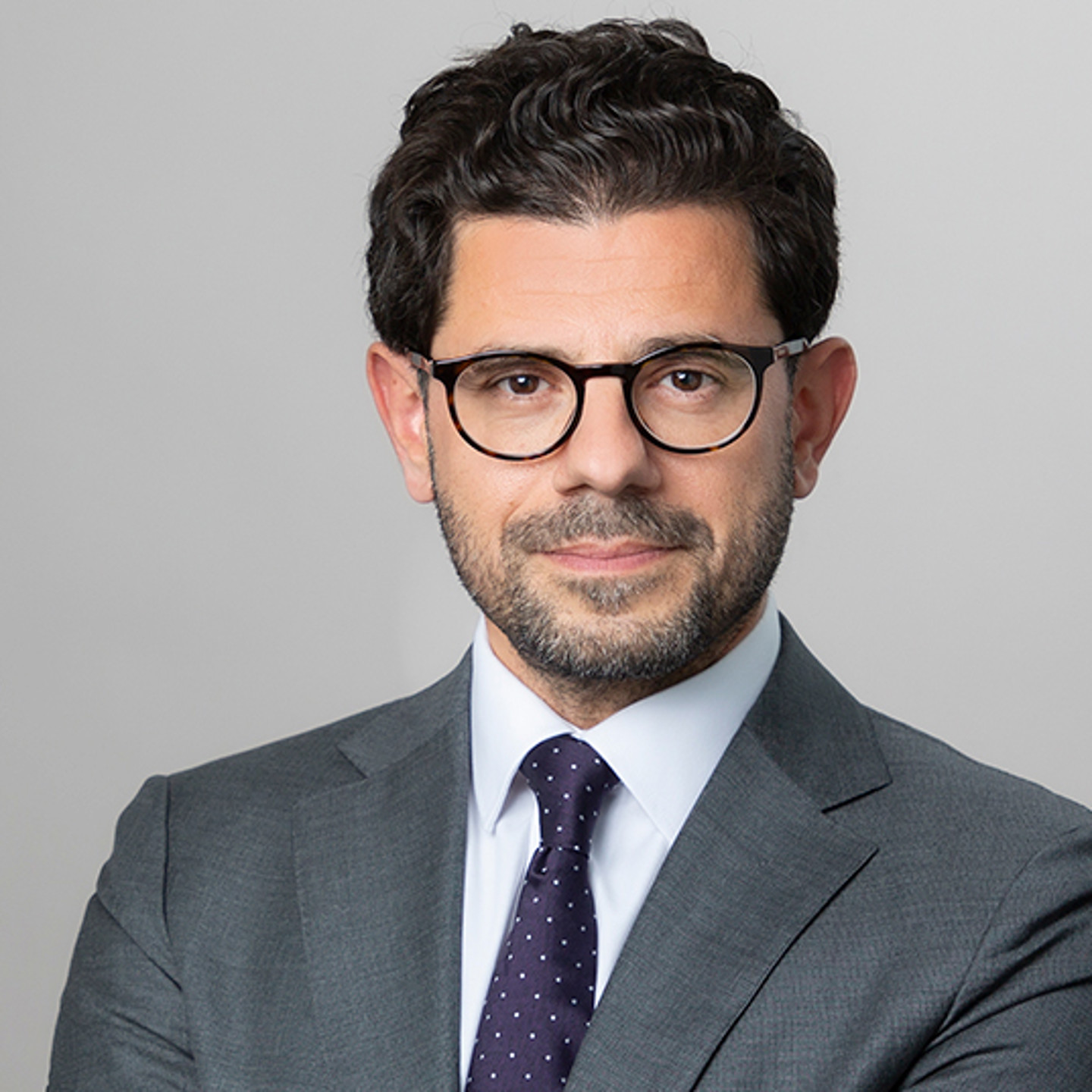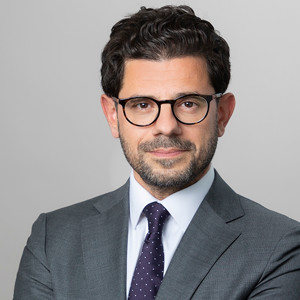
Jad Nader
Partner | Legal
Luxembourg Legal Services

Jad Nader
Partner
Luxembourg Legal Services
No Content Set
Exception:
Website.Models.ViewModels.Components.General.Banners.BannerComponentVm
Direct lending is not a new business. It is part of the banks’ core business. What is new is the increase of non-traditional lenders stepping into the banks’ role as a response inter alia to the on-going banking deleveraging due to the combined effect of credit deterioration, stricter regulatory requirements and increased capital constraint.
The Financial Stability Board, an organisation of financial and supervisory authorities from major economies and international financial institutions, defines shadow banking as “credit intermediation that involves entities and activities outside the regular banking system”[1]. Evaluated using their new, activity-based, narrow definition of shadow banking, the sector was worth USD 36 trillion in 2014, up from USD 35 trillion in 2013[2].
With regard to Europa-focused direct lending funds, Prequin data reveals that the amount of capital raised by such funds closed in 2015 reached a total of USD 19 billion and overtook North American counterparts in 2015[3].
Alternative lenders consist of a wide range of non-bank institutions with different strategies including private debt, mezzanine, opportunity and distressed debt. Investors range from large asset managers diversifying into alternative debt to smaller funds newly set up by ex-investment professionals.
Direct lending can be made through:
This client briefing will focus on loan origination by regulated or non-regulated entities in Luxembourg.
Loan origination activities can be pursued in Luxembourg without having to apply for a banking license provided no deposits and other repayable funds are received from the public.
A professional lender’s licence will also not be required when lending operations are carried out (either directly or through a wholly-owned or controlled Luxembourg SPV) by the following entities: (i) undertakings for collective investment (UCI), (ii) specialised investment funds (SIF), (iii) pension funds, (iv) investment companies in risk capital (SICAR) and (v) securitisation vehicles.
Finally the following activities can be performed without triggering any authorisation requirements:
The Luxembourg financial sector regulator (the Commission de Surveillance du Secteur Financier, the CSSF) remains vigilant concerning shadow banking issues. Thus, promoters and fund managers who wish to carry out lending activities on a regular basis would be well advised to clear in advance with the CSSF whether or not the contemplated activity will require a lending licence.
Luxembourg is the largest European fund domicile and the second largest fund centre in the world after the US. With its track record in investment funds, its flexible and efficient legal, regulatory and tax environment, Luxembourg is an attractive and strategic location for a debt platform.
Over 70% of the top 30 debt fund managers worldwide are present in Luxembourg[4].
Luxembourg offers a broad range of investments vehicles that may be used by funds managers / promoters wishing to set up a direct lending vehicle.
In selecting the most appropriate vehicle, the choice will be influenced by a range of factors including the type of funding to be raised, the investors' specifics, tax considerations and the type of investments. The applicable, domestic Luxembourg taxation regime will also be a key driver when selecting a regulated versus an unregulated vehicle.
There are two principal, regulated Luxembourg fund vehicles appropriate for debt funds, available to institutional, professional and sophisticated investors:
The SIF is an attractive vehicle due to its flexible operating rules and extensive investment scope. The laws regulating SIFs do not prescribe any quantitative, qualitative, geographical or other type of investment restriction. SIFs can therefore be applied broadly. It is also possible to create a SIF as an umbrella fund with different compartments each dedicated to a special type of investment policy (for example, private equity, real estate and hedge funds) and strict segregation of assets and liabilities between the compartments. A SIF must not invest more than 30% of its assets or commitments in securities of the same kind issued by the same issuer (although an exemption could apply for a feeder fund). Investment in a SIF is reserved for “well-informed” investors.
The SICAR does not require any risk diversification. Its object is the “direct or indirect contribution of assets to entities in view of their launch, development or their listing on a stock exchange”. This includes any type of financing be it by way of an equity contribution, bond issuance, bridge finance or similar financing, mezzanine-type financing, convertible debt, subject to the financing being a “risk capital” type of contribution[5].
SIF and SICAR can be established either as:
A SIF may also take the legal form of a common fund (fonds commun de placement) (FCP). The FCP has no legal personality and must be managed by a management company.
Alternative investment funds (AIF) like SIF or SICAR managed by authorised alternative investment fund managers (AIFM) with lending strategies can, if certain conditions are met, be eligible to apply for and obtain the ELTIF (European Long-Term Investment Fund) label and thus be able, in particular, to raise capital from institutional and retail investors across the member states of the European Union and the European Economic Area.
In December 2015, the Luxembourg government tabled a bill of law with the Parliament aiming at introducing a new type of Luxembourg investment fund: the reserved alternative investment fund (fonds d’investissement alternatif réservé) (RAIF).
The RAIF regime will to a large extent replicate the regime applicable to the SIF. It will not be subject to supervision by the CSSF, and will be reserved for the structuring of AIF that appoint a duly authorised AIFM.
This new type of AIF vehicle is expected to be available over the course of the third quarter of the year 2016.
Alternatively, a non-regulated Luxembourg limited partnership (either a société en commandite simple (SCS) or a société en commandite spéciale (SCSp)), with an AIFMD-compliant investment strategy and managed by an authorised AIFM can be used for the structuring of an AIF and will avail of the European marketing passport.
As unregulated vehicles, SOPARFIs provide maximum flexibility regarding the investment policy
while giving investors the possibility to take advantage of Luxembourg tax treatment.
The key features of SOPARFIs are:
Although other corporate forms are available, the most commonly used legal forms are:
The granting of loans - instead of acquiring them on the secondary market - may also be regarded as securitisation and thus be carried on by an unregulated Luxembourg SV, provided that the SV:
The SV can take the form of:
The Luxembourg law of 22 March 2004 on securitisation offers the possibility to have ring-fenced compartments within the SV, allowing a clear segregation of assets and liabilities between them. There is also statutory recognition of contractual limited recourse, non-petition and subordination arrangements.
| SIF | SICAR | SOPARFI | SV (unregulated) | |
|---|---|---|---|---|
| Income tax | No | Fully taxable at a rate of 29.22% (corporate income tax and municipal business tax) but exemption of income derived from transferable securities and income from cash held for a period of maximum 1 year prior to its investment in risk capital | Fully taxable at a rate of 29.22% (corporate income tax and municipal business tax) but 100% exemption for dividends, liquidation proceeds and capital gains from qualifying participations | Fully taxable at a rate of 29.22% (corporate income tax and municipal business tax) but deductibility of all payments and distributions made to investors |
| Subscription tax | 0.01% of NAV Some exemptions available |
No | No | No |
| Withholding tax | No | No | 15% on dividends but exemption for qualifying parent companies or reduced treaty rates No withholding tax on interest, royalties and liquidation proceeds |
No |
| Net wealth tax | No | No, save for the minimum NWT of EUR 3,210 | 0,5% of the net assets at 1 January of each year 0,05% of the portion of the net assets exceeding EUR 500,000,000 Minimum amount of NMT due is EUR 3,210 |
No, save for the minimum NWT of EUR 3,210 |
| VAT | Yet, but exemption of management services provided to the vehicle | Yet, but exemption of management services provided to the vehicle | Exempt, but reverse charge mechanism may apply | Exemption of management services |
| Registration duties | EUR 75 upon incorporation, share capital increase through contribution against shares or other amendments to the articles of incorporation | EUR 75 upon incorporation, share capital increase through contribution against shares or other amendments to the articles of incorporation | EUR 75 upon incorporation, share capital increase through contribution against shares or other amendments to the articles of incorporation | EUR 75 upon incorporation, share capital increase through contribution against shares or other amendments to the articles of incorporation |
We operate across a wide spectrum of corporate and fund structures and their particular regulatory and commercial approaches in our core jurisdictions: BVI, Cayman, Guernsey, Hong Kong, Jersey and Luxembourg.
With the support of our experienced fund, finance, tax and corporate specialists we provide a one-stop-shop for the full funds lifecycle ranging from fund formation, structuring, regulation, corporate governance and investor disputes through to exit and termination situations.
[1] Financial Stability Board, Shadow Banking: Scoping the Issues, 12 April 2011, http://www.fsb.org/2011/04/shadow-banking-scoping-the-issues
[2] Financial Stability Board, Global Shadow Banking Monitoring Report 2015, 12 November 2015, http://www.fsb.org/2015/11/global-shadow-banking-monitoring-report-2015
[3] Prequin, 2016 Preqin Global, Private Debt Report
[4] Association of the Luxembourg Fund Industry (ALFI), Debt Funds - An Alternative Source of Financing for the European Economy, June 2015, http://www.alfi.lu/node/2980
[5] Circular CSSF 06/241, p. 3
[6] CSSF, FAQ on securitisation, version dated 23 October 2013, Question 7, http://www.cssf.lu/en/supervision/ivm/securitisation/faq
[7] CSSF, FAQ on securitisation, version dated 23 October 2013, Question 19, http://www.cssf.lu/en/supervision/ivm/securitisation/faq

Jad Nader
Partner | Legal
Luxembourg Legal Services

Jad Nader
Partner
Luxembourg Legal Services
Ogier is a professional services firm with the knowledge and expertise to handle the most demanding and complex transactions and provide expert, efficient and cost-effective services to all our clients. We regularly win awards for the quality of our client service, our work and our people.
This client briefing has been prepared for clients and professional associates of Ogier. The information and expressions of opinion which it contains are not intended to be a comprehensive study or to provide legal advice and should not be treated as a substitute for specific advice concerning individual situations.
Regulatory information can be found under Legal Notice
Sign up to receive updates and newsletters from us.
Sign up
No Content Set
Exception:
Website.Models.ViewModels.Blocks.SiteBlocks.CookiePolicySiteBlockVm